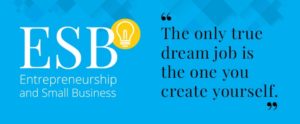This post was authored by Dr. Elaine Perea, CTE State Director, New Mexico and Dr. Pradeep Kotamraju, State Director, Iowa based on their recent experiences exploring the German Technical and Vocational Education system.
The Goethe Institut brought together leaders from education, workforce development, industry, and law makers as delegates to visit Germany and learn about technical and vocational education (TVET), the international name for Career Technical Education (CTE). Dr. Elaine Perea, CTE State Director, New Mexico and Dr. Pradeep Kotamraju, State Director, Iowa, represented their states as well as Advance CTE. Over six days, delegates learned about German education and workforce development, with special emphasis on apprenticeships, through visits with students, educators, employers, and government officials.
The program included visits to different education and workforce preparation institutions. TVET is part of the nation’s compulsory education, and the first visit was to a realschule (a lower secondary school).
The most notable difference between the students at the realschule and similarly aged students in the United States is the self-awareness that realschule students possess. Every one of them was able to discuss, in concrete terms, their strengths and preferences as it relates to the world of work. Each student expressed their vision of their future career based primarily on their individual traits, as well as their full access to career guidance and development information, which included real-world experiences through internships at the workplace of their choice.
For example, a young man told us that he wanted to work in the automotive industry because he loves cars and speaks English, German and Italian. The delegates assumed he wanted to be a mechanic, or perhaps even an engineer. He realized our mistake, and corrected it – because he loves automobiles, he is inspired to sell them! In contrast, imagine an American ninth grader proudly expressing his desire to be a car salesman, and the reaction that would likely provoke from teachers.
These self-assured learners are proud of their strengths and see themselves as an important part of the economy. Academics are not forgotten, but students at realschule learn about themselves and the world of work in concrete ways that allow them to make informed decisions about their own future.
In the ninth and tenth grade, students arrange their first work-based learning opportunities via a short, two-week internship. The teachers help students think through options and instructors provide support in technical writing task. However, research about where to intern is up to students, and students must contact employers directly and request to be hosted.
In short, teenage students in Germany own their career choices. Not once during the program did a student express the idea that the primary determinant of preparedness was an adult. Instead, one after another, students demonstrated an impressive level of self-determination about their goals and ambitions.
Employers Play Vital Role
Employers are at the heart of the German workforce preparation and apprenticeship system, and all sizes and types of businesses participate and host students as both interns and apprentices. While a commitment to host an intern only requires a few weeks, accommodating an apprentice is a substantial responsibility that includes two or more years of salary support.
One key takeaway is that the role of industry in the German system is both the heart of the endeavor and the most difficult aspect to replicate in the United States without a full-fledged commitment of time, resources and dedication. Students spend a third of their time on formal, structured training with a set curriculum, and two thirds of their time in on-the-job training, which is also directed by curriculum and weekly learning objectives.
Business and industry are highly involved in job classification and curriculum development. While the government oversees qualifying exams and state certifications, the content is developed with significant input from business. Regional chambers of commerce serve as the intermediary between education and business.
Instructors Help Learners Find Their Paths
Teachers are not apart from the system; instead, they might be called “learning technicians.” They are asked to deliver state-provided curriculum and prepare students to pass a state-administered certification examination.
In Germany, every single student is on a path to a career, and instructors see it as their job to ensure students find their way. Students believe it is their responsibility to find a match between their skills and the world of work. Germany’s low level of youth unemployment (around 6 percent) suggests that youth are authentically engaged in developing their careers.
German teachers play an oversized role in nurturing student’s self-awareness. Especially at the realschule, the role of educators seems to sit squarely within the realm of socio-emotional development. Finding a path forward precedes skills attainment, and teachers are essential to discovering that path.
Implications for US CTE System
Recognizing the level of business and industry involvement is critically important for understanding the German model. Significant resources are provided: direct financial support to the trainees, staff oversight, training materials and advisement on curriculum development. Any widespread work-based learning initiative in the United States will require similarly significant levels of investment.
After learning of the German model, delegates did not arrive at any sort of “plug and play” ideas that are easy to transport back to the United States. Instead, we developed a deeper and nuanced understanding of the system, with the insight that ownership of what happens within the education system, but more specifically, within the TVET system, seems to “belong” much more to the employers than to the government.
The visit was a catalyst for creative thinking about how to improve work-based learning in the United States. Key suggestions include adequately incentivizing employer participation through tax deductions and direct funding, considering employee training and loyalty as a company asset, running Pell grants and guaranteed student loans through employer training channels, and increasing teacher knowledge of technical careers.
While none of the delegates thought the German model could or should be transported in its exact form, the delegates agreed that American learners would be well-served if they had more work-based learning and real-world experiences.
The outreach program was sponsored by several key partners, include the Foreign Office of the Federal Republic of Germany, the Goethe-Institut, Deutsche Bank, the Robert Bosch Stiftung, and the Siemens Corporation. All travel costs were covered by Goethe-Institut and its partners.


 annual Excellence in Action award recognizes and honors superior Career Technical Education (CTE) programs of study from across the nation. Selected programs of study will exemplify excellence in the implementation of the Career Clusters, show a true progression from secondary to postsecondary education, provide meaningful work-based learning opportunities, and have a substantial and evidence-based impact on student achievement and success.
annual Excellence in Action award recognizes and honors superior Career Technical Education (CTE) programs of study from across the nation. Selected programs of study will exemplify excellence in the implementation of the Career Clusters, show a true progression from secondary to postsecondary education, provide meaningful work-based learning opportunities, and have a substantial and evidence-based impact on student achievement and success. study in the nation? Apply for the
study in the nation? Apply for the  location, or a car repair garage in the suburbs, an incredible number of small businesses can be found almost everywhere. In fact, in a recent report from Business.com, “every minute, a new business is started in the U.S. and, according to some, more than 50 percent of all workers will be self-employed by 2020.” (The State of Small Business in America, 2015, Business.com, emphasis added.)
location, or a car repair garage in the suburbs, an incredible number of small businesses can be found almost everywhere. In fact, in a recent report from Business.com, “every minute, a new business is started in the U.S. and, according to some, more than 50 percent of all workers will be self-employed by 2020.” (The State of Small Business in America, 2015, Business.com, emphasis added.) parents and students to explore their attitudes towards Career Technical Education (CTE). Detailed in the recent report,
parents and students to explore their attitudes towards Career Technical Education (CTE). Detailed in the recent report,